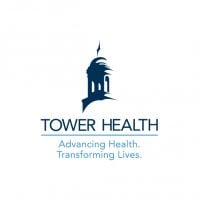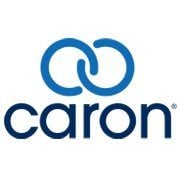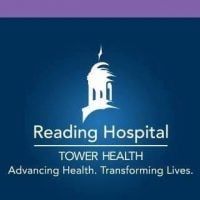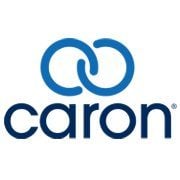Reading Hospital - Drug and Alcohol Rehabilitation
Drug Rehab Center in Reading, Pennsylvania
Reading Hospital in Pennsylvania provides evidence-based drug and alcohol rehabilitation services, including detoxification programs, inpatient and partial-hospitalization care, and aftercare programs, with a focus on 12-step facilitation, cognitive behavioral therapy, and various other therapeutic approaches, and is accredited by JCAHO, SAMHSA, and state-licensed.
About This Reading, PA Facility
Reading Hospital – Drug and Alcohol Rehabilitation is a 21-bed facility located in Reading, Pennsylvania. It provides comprehensive care for individuals struggling with alcohol, opioid addiction, and substance abuse, as well as co-occurring mental health issues. The hospital offers aftercare programs, detoxification programs, drug rehab, inpatient and partial-hospitalization care, and residential short-term care for up to 30 days.
Treatment approaches at Reading Hospital are evidence-based and centered around 12-step facilitation, cognitive behavioral therapy, contingency management/motivational incentives, creative arts therapy, dialectical behavioral therapy, family therapy, fitness therapy, group therapy, health education services, Hepatitis and HIV/AIDS education, individual therapy, life skills, motivational interviewing, nicotine replacement therapy, rational emotive behavior therapy, and substance use counseling. For added assurance, the hospital is accredited by the Joint Commission on Accreditation of Healthcare Organizations (JCAHO), the Substance Abuse and Mental Health Services Administration (SAMHSA), and is state-licensed.
Genders
Ages
Modality
Additional
Accreditations
State License
SAMHSA

JCAHO
Conditions and Issues Treated
Using both legal medications and illegal substances in order to maintain an addiction is substance abuse. Illegal substances can become addictive after a single use. If you are obtaining legal medications illegally, you may be suffering from substance abuse.
Fortunately facilities like Reading Hospital - Drug and Alcohol Rehabilitation in Reading, PA are here to help.
Opioid addiction treatment facilities in Pennsylvania, like Reading Hospital - Drug and Alcohol Rehabilitation cover both illegal and prescription opioids abuse. Most plans include detoxification and subsequent medications to ease the process. Behavioral therapies and counseling are also necessary to resolve the root cause of addiction.
A dual diagnosis is when someone deals with both alcohol and mental or emotional disorder. Emotional trauma, bipolar disorder, schizophrenia, depression can be part of dual diagnosis therapy. It must happen simultaneously to get care for these conditions to handle any of them effectively.
Levels of Care Offered
This center offers a variety of custom treatment tailored to individual recovery. Currently available are Aftercare Support, Detox, Drug Rehab, Dual-Diagnosis, Inpatient, Partial-Hospitalization, Residential, with additional therapies available as listed below.
Detox is a drug rehab process that is designed to remove the drug addict from the drug safely. The problem with solely using detox as a sobriety tool is that it alone provides no therapy or counseling. If a person goes through detox and returns to their everyday life, they may begin using again once the detox has worn off.
Detox does not help with cravings, so for some addicts, this can be extremely difficult and should be both done and supervised by medical professionals. Aftercare is crucial, so selecting a facility that offers additional services is important.
Inpatient treatment takes place when a patient checks into a rehab facility. Patients at Reading Hospital - Drug and Alcohol Rehabilitation receive round the clock care that includes detoxing and therapy. Although outpatient treatments are available, inpatient care is recommended as the first step in rehabilitation. The intensive and comprehensive treatment sets patients on a path for drug free living.
A partial hospitalization program is set up to cover those struggling with acute symptoms of addiction. This means that the individual is cared for in a hospital-like environment in Reading, PA during the struggle of those symptoms, but allowed to go home at night. Most PHPs require approximately six-hours of therapy, at least three days per week.
Residential treatment programs are those that offer housing and meals in addition to substance abuse treatment. Rehab facilities that offer residential treatment allow patients to focus solely on recovery, in an environment totally separate from their lives. Some rehab centers specialize in short-term residential treatment (a few days to a week or two), while others solely provide treatment on a long-term basis (several weeks to months). Some offer both, and tailor treatment to the patient’s individual requirements.
Treatment is just the first step to maintaining sobriety. After treatment, aftercare support at Reading Hospital - Drug and Alcohol Rehabilitation helps the individual adjust to a life without substances. This support may involve a sober living home in or near Reading, PA, career counseling, or educational assistance. This is when a relapse prevention plan begins to take shape.
Reading Hospital - Drug and Alcohol Rehabilitation‘s Therapies & Programs
Treatment programs include individual therapy for the greatest chances of success. Customized individual therapy is counseling involving you and your Reading Hospital - Drug and Alcohol Rehabilitation counselor. Individual therapy leads to greater peace and understanding about your triggers for addiction.
When family members are more proactive and involved in the treatment procedure, it encourages the patient to advance his or her progress. Moreover, it shouldn’t be ignored that genetics play a role when it comes to addiction, so it’s better to approach the problem as a unit. Also, with proper education, family members can help an individual avoid addiction triggers and guide him or her in making lifestyle changes necessary for his or her sobriety.
Dialectical Behavior Therapy (DBT) helps those who attend Reading Hospital - Drug and Alcohol Rehabilitation understand how their feelings, beliefs, and thoughts affect their behaviors. DBT is particularly useful for people with self-harming behaviors, as well as those with substance abuse disorders. DBT teaches people how to tolerate distress, regulate their emotions, and how to become mindful.
Cognitive Behavioral Therapy (CBT) is a type of psychotherapy that focuses on the underlying thoughts and behaviors that caused the problem of addiction in the first place and may cause a relapse. Negative feelings are common in substance abuse disorders, and if not recognized, they can cause co-occurring disorders.
CBT involves strategies that help to change the thinking and behavioral pattern by cognitive restructuring. In simple terms, it helps to remove negative thoughts and provides long-term benefits. Also, CBT promotes self-awareness, self-control, and healthy ways to respond to negative thoughts. It can be administered as a mono-therapy as well as a part of combination therapy.
In the midst of an addiction certain healthy habits and behaviors can be forgotten or discarded altogether. While in treatment you will learn life skills that will help you successfully maintain sobriety and rebuild your life in Reading, PA. Some examples of this are time management, social skills, nutrition, hygiene, stress management and taking care of yourself.
The 12-step program is a part of substance abuse treatment. In this program, peers help each other to achieve the goal of abstinence. It was initially developed by the founders of Alcoholics Anonymous. Due to its huge success, the 12-step program is included as a part of other substance abuse treatments.
The 12 steps guide at an individual level. It begins with the individuals accepting that they are addicts, and they understand its consequences. It is followed by focusing on the recovery process and making amends for hurting others. The program provides the benefit of cognitive restructuring, which refers to the process of change in the negative thoughts that leads to long-term benefits.
Patient Experience
Creative Arts
Many people opt for creative arts therapy at Reading Hospital - Drug and Alcohol Rehabilitation because allowing out the creative side helps them process many situations. Creative arts therapy can include singing, playing instruments, writing, sculpting, fashion, painting, improv, building, and more. The creation process helps people think through puzzles to achieve and end result, which can then be applied to the process from addiction through recovery.
Fitness Therapy
Recovery from addiction involves recovering the body and mind. Learning how to take care of yourself includes physical fitness. Studies have shown that exercise increases abstinence rates and ease withdrawal symptoms.
Payment Options Accepted
For specific insurance or payment methods please contact us.
Is your insurance accepted?
Ask an expert, call (888) 674-0062
Additional Details
Specifics, location, and helpful extra information.
Reading, Pennsylvania 19611 Phone Number(484) 628-8186 Meta DetailsUpdated November 25, 2023
Staff Verified
Patient Reviews
There are no reviews yet. Be the first one to write one.
Reading, Pennsylvania Addiction Information
Pennsylvania ranks 14th in the nation for drug-related deaths. More than 10% of all deaths in Pennsylvania have been related to drugs and alcohol. 30% of Pennsylvania youth reportedly drink alcohol monthly, with more than 20,000 teenagers having an alcohol problem. The rate of opioid misuse in Pennsylvania is double the national average.
Reading, Pennsylvania has a high rate of drug addiction and abuse. The most common drugs of abuse in Reading are heroin and cocaine. About 1 in every 100 people in Reading sought treatment for drug addiction. Reading, Pennsylvania, is home to several rehabilitation facilities that offer various types of treatment for drug and alcohol abuse. Drug and alcohol treatment centers can provide addicts with the tools they need to stay sober.
Treatment in Nearby Cities
- Cranberry Twp, PA (220.1 mi.)
- Towanda, PA (102.2 mi.)
- Marienville, PA (183.6 mi.)
- Wrightsville, PA (37.6 mi.)
- Darby, PA (46.5 mi.)
Centers near Reading Hospital - Drug and Alcohol Rehabilitation
The facility name, logo and brand are the property and registered trademarks of Reading Hospital - Drug and Alcohol Rehabilitation, and are being used for identification and informational purposes only. Use of these names, logos and brands shall not imply endorsement. RehabNow.org is not affiliated with or sponsored by Reading Hospital - Drug and Alcohol Rehabilitation.












